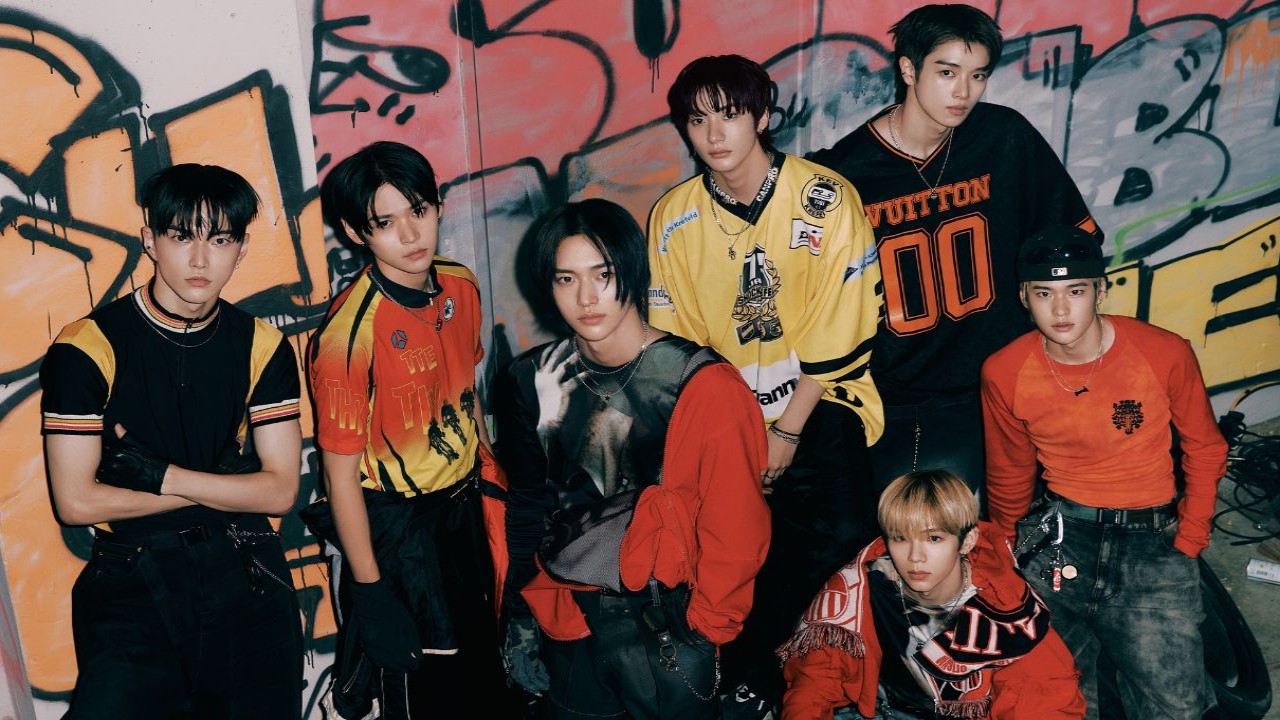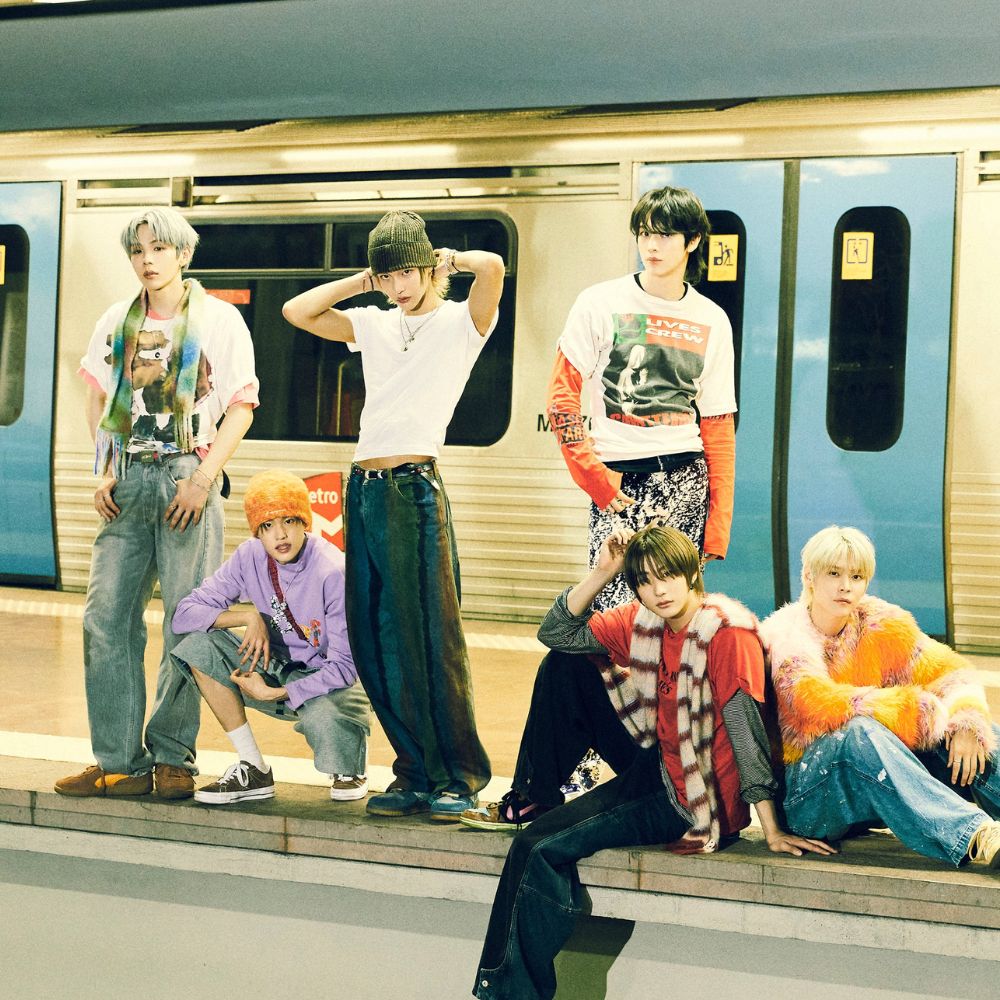What’s sajaegi and why is fourth-gen K-pop boy group RIIZE being suspected of faking sales? Know DETAILS
Fourth generation K-pop group RIIZE is suspected of fake voting also known as sajaegi. Know what sajaegi is and why the K-pop group is facing these allegations.

-
Fourth gen K-pop group RIIZE is being accused of chart manipulation
-
These accusations stems from their recent million selling debut album Get A Guitar
SM Entertainment's rookie boy group RIIZE, one of the two K-Pop groups that debuted in 2023 and achieved the milestone of selling 1 million copies of their debut album, is now facing allegations of "sajaegi." RIIZE, formed by SM Entertainment, comprises seven members: Shotaro, Eunseok, Sungchan, Wonbin, Seunghan, Sohee, and Anton. Their debut took place on September 4, 2023, with the single album Get a Guitar. Seunghan is presently on an indefinite hiatus due to multiple controversies.
RIIZE being accused of sajaegi
In September 2023, RIIZE's debut single album Get A Guitar gained the prestigious status of a Million-Selling album, boasting approximately 1.01million copies in first-week sales from September 4 to September 10. As per Circle Chart's monthly album sales chart for September 2023, the total sales reached 1,039,600 copies by the end of that month.
However, recent observations by netizens indicate a decline in Get A Guitar sales since September. According to the December update on the Circle Chart, which also reflects yearly sales, the total count for Get A Guitar had slightly decreased to 1,038,084 copies since its release.
What puzzled netizens was that since their debut, RIIZE has organized over 60 events, all of which necessitated fans to buy albums to access special privileges or benefits, including in-person fan signs, fan calls, and lucky draw events. Notably, these events continued even after RIIZE concluded promotions for Get A Guitar and released subsequent new singles like Talk Saxy and Love 119. However, contrary to expectations, instead of contributing to RIIZE's yearly album sales record, these events seemed to be lowering the group's overall sales numbers.
What are the indications of RIIZE committing sajaegi?
It's a common and legal practice in the K-pop industry for artists and their agencies, in collaboration with album distributors, to "pre-order" albums with special events in mind. This involves placing orders in advance to anticipate higher demand, announcing events like fan signs or lucky draws well ahead of time, and encouraging fans to make bulk purchases within the initial weeks of an album's release. However, artists typically ensure that they meet the stipulated quota by concluding the necessary special events before concluding promotions for that particular album. This ensures that the pre-ordered and sold albums accurately align with the actual sales figures.
In RIIZE's case, netizens identified several issues: firstly, the boy group appeared to "fall short of filling the quota" they had aimed for, leading to a recorded decrease in overall album sales according to Circle Chart; secondly, despite the group beginning promotions for new songs and holding events associated with those new promotions, but with the old album Get A Guitar and third, the group claimed the title of Million-Sellers, raising doubts about whether they would have genuinely achieved a million copies in first-week sales without the use of the "advance order" strategy.
Considering all these factors, netizens have raised the possibility of chart manipulation. These suspicions are currently gaining attention across various online communities.
So what exactly is sajaegi
Sajaegi, also known as bulk purchasing or mass buying, involves acquiring much larger quantities than usual at a unit price lower than the typical rate. In South Korea, the term sajaegi commonly refers to the illicit bulk buying of various items, for example when a company purchased over four million face masks due to concerns over the coronavirus outbreak.
In the context of the music industry, sajaegi has a more specific meaning, involving the unethical and/or illegal manipulation of chart rankings. This can include entertainment agencies purchasing their own CDs in large quantities or, more prevalent in the digital era, employing bots or computer farms to artificially inflate streaming numbers and boost chart positions. Sajaegi scandals have posed challenges to the Korean music industry, raising questions about the credibility of online charts, entertainment agencies, and even certain fan engagement practices.
Chart manipulation has sparked controversy in South Korea, leading to measures aimed at prevention. The Ministry of Culture in South Korea has taken steps to address the issue by imposing a ban on midnight releases, with the goal of mitigating chart manipulation.
Internationally, to counter fan-orchestrated chart manipulation, Billboard has implemented new rules, particularly targeting the Billboard Hot 100. The rule change specifies that only one digital sale per customer per week will be counted for songs and albums. Bulk purchases of two or more will not be taken into consideration in an effort to maintain the integrity of the charts.
Stay updated with the latest Hallyu news on: Instagram, YouTube, Twitter, Facebook and Snapchat
ALSO READ: Talk Saxy: RIIZE brings back the 90s with new comeback music video; WATCH





 JOIN OUR WHATSAPP CHANNEL
JOIN OUR WHATSAPP CHANNEL



































































